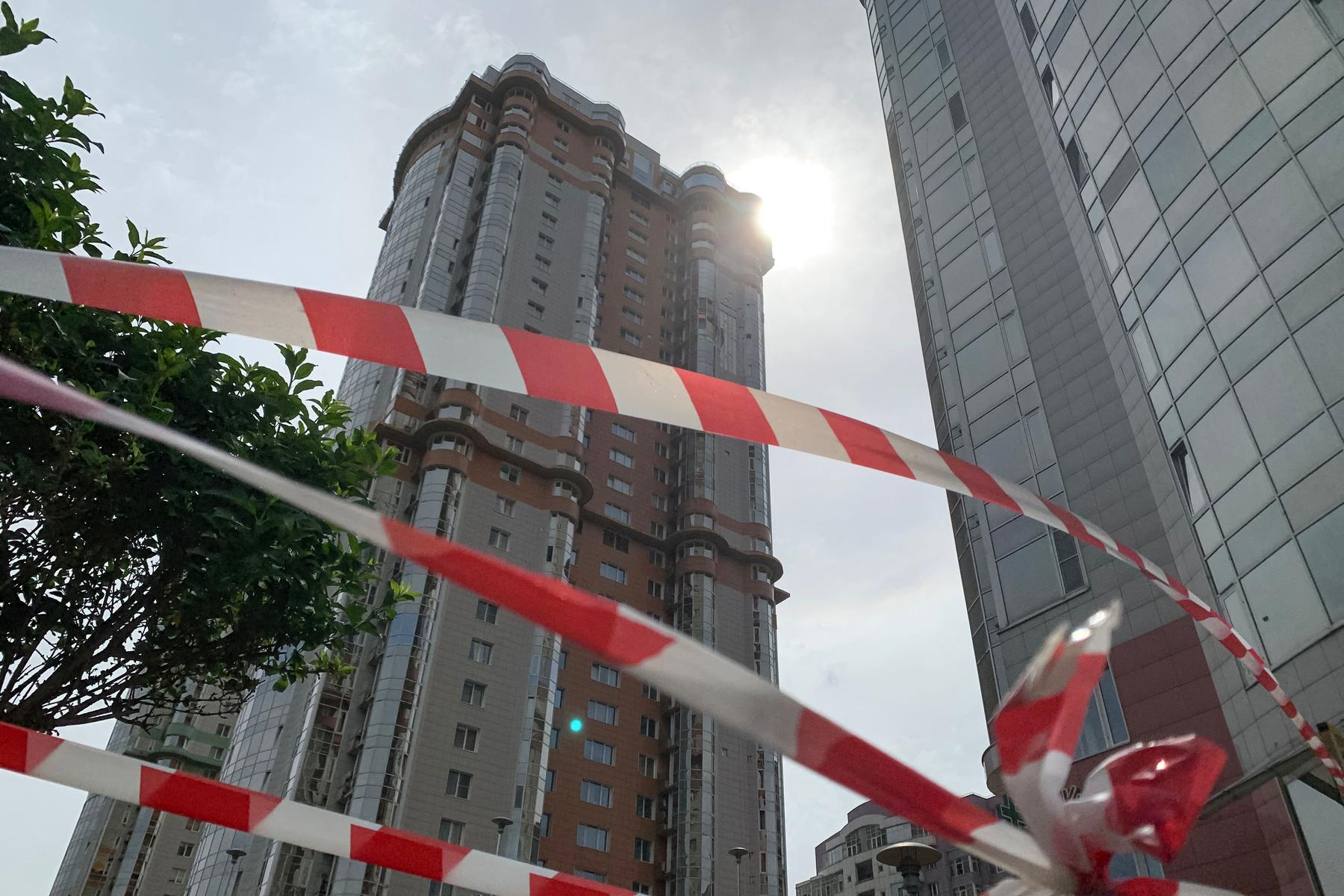Council of State advises: Give climate minister more power
:format(webp)/s3/static.nrc.nl/wp-content/uploads/2024/09/26152248/data122200392-042319.jpg)
Due to the changing world order, with all the additional international tensions, the theme of climate threatens to disappear into the background. But that change requires an independent, sustainable energy supply. And it offers opportunities to « strengthen its own geopolitical position of power. »
That is what the Council of State, an independent advisory body for government and parliament, says in a five -year analysis of Dutch climate policy. That analysis is an obligation from the Climate Act.
The shifting power relationships in the world lead to « protectionism within trade blocks, » the Council says. Especially with regard to critical raw materials (for example important metals and minerals), Europe is vulnerable and dependent on abroad. The struggle between trade blocks therefore has an « unmistakable » influence on the climate transition here.
For example, Europe now has to deal with higher energy prices due to the loss of Russian natural gas. Furthermore, important earth metals and minerals for the energy transition, such as lithium and cobalt, barely reused for the time being. The circular economy is slowly starting, much steering policy is missing.
Sheaf
But the council also sees many « positive » developments. In the past five years, the climate policy has 'taken more and more form'. A minister of climate and cabinets have now formulated ambitions on matters such as climate justice and circularity.
Yet much is still uncertain about the period after 2030. The Cabinet Schoof has to plan concrete, so that companies and citizens can count on predictable policy. This uncertainty undermines investments and hinders the energy transition.
The government must make sustainable choices cheaper than non-sustainable, advises the council
The route ahead of the cabinet is « earning by greening », in other words: economic growth and less co2-Ill.. But this government makes too few knots to offer certainty in the longer term. In the climate plan of the Cabinet Schoof, « clear, guiding choices are not made. »
Because what kind of industry does the Netherlands want? Can companies continue unhindered? Or is change necessary? Do some companies have to stop so that new, sustainable activities get the space? What does the cabinet priority give to?
Some green plans also work against each other or even compete with each other. What consequences does the State participation in nuclear power stations For example, for the generation of local, sustainable energy, the council wonders. And more electrification is needed now that heat networks – To make neighborhoods natural gas -free – Don't get going? Nearly or changing choices for one technique have an effect on the other.
Read also
Charcoal sketches and talk cards: What will the Netherlands look like in the future?
Lawsuits
The council is critical of the 'fickle decision -making' of recent years. The advisory body mentions heat pumps as an example. The cabinet deleted the plan to oblige it from 2026 when replacing the central heating boiler, while companies were already investing in the pumps at the request of the previous government.
The compensation of European Co was also2-Costs for industrial companies stopped by the previous cabinet, to stimulate companies to make it more sustainable. In the end, the previous government paid the compensation (temporarily), after criticism from the industry about a deteriorated competitive position with abroad.
In addition, the Council calls Climate Policy 'not without obligation'. Recent lawsuits, such as those between Milieudefensie and Shellaccording to the council, show that « protection against dangerous climate change is a human right » and that must be « the judge (must) intervene when this policy falls short. »
Cheap
Dutch climate policy has been using more subsidies than rules or taxes to stimulate sustainable behavior for years. Forcing too much was also politically sensitive in previous cabinets. But subsidies work especially well for one -off (financial) barriers, such as a house more sustainable, but for long -term behavioral change.
The Council warns that subsidies also end up with « those who already show the desired behavior ». If the cabinet wants to make the climate transition actually fairer, as stated in the climate plan, then it must think about what is fair. Is that 'the strongest shoulders bear the heaviest loads' or 'the polluter pays'? Because what if 'the polluter' is a burger with a small wallet that depends on a car?
According to the advisory body, the government should use rules and taxes more often, so that the Dutch can pay for this more sustainability. And the government must consider compensating climate costs for lower incomes. This way, climate policy can become more fairer, which increases support.
The government must also make sustainable choices cheaper than non-durable. Only then, says the council, people change their behavior.
Climate minister
The Council also makes a remarkable proposal. The Minister of Climate depends on other ministers, who now have the last say about, for example, housing or traffic. But the control of the coordinating climate minister must be expanded, the Council advises. This minister can then immediately participate in decisions about laws and climate fees on other ministries.
This stronger 'coordinating role' and the support of the Prime Minister as chairman of the Council of Ministers must ensure that the 'Climate and Green Growth Minister can make its position'.
Read also
PBL: Coalition agreement is shifting pain to the future

:format(webp)/s3/static.nrc.nl/wp-content/uploads/2024/06/13123626/data116961974-6f720a.jpg)
:format(webp)/s3/static.nrc.nl/wp-content/uploads/2025/05/22214607/web-2205BUIbill_vandaag2.jpg)

/s3/static.nrc.nl/images/gn4/stripped/data132852687-3c5e5d.jpg)




